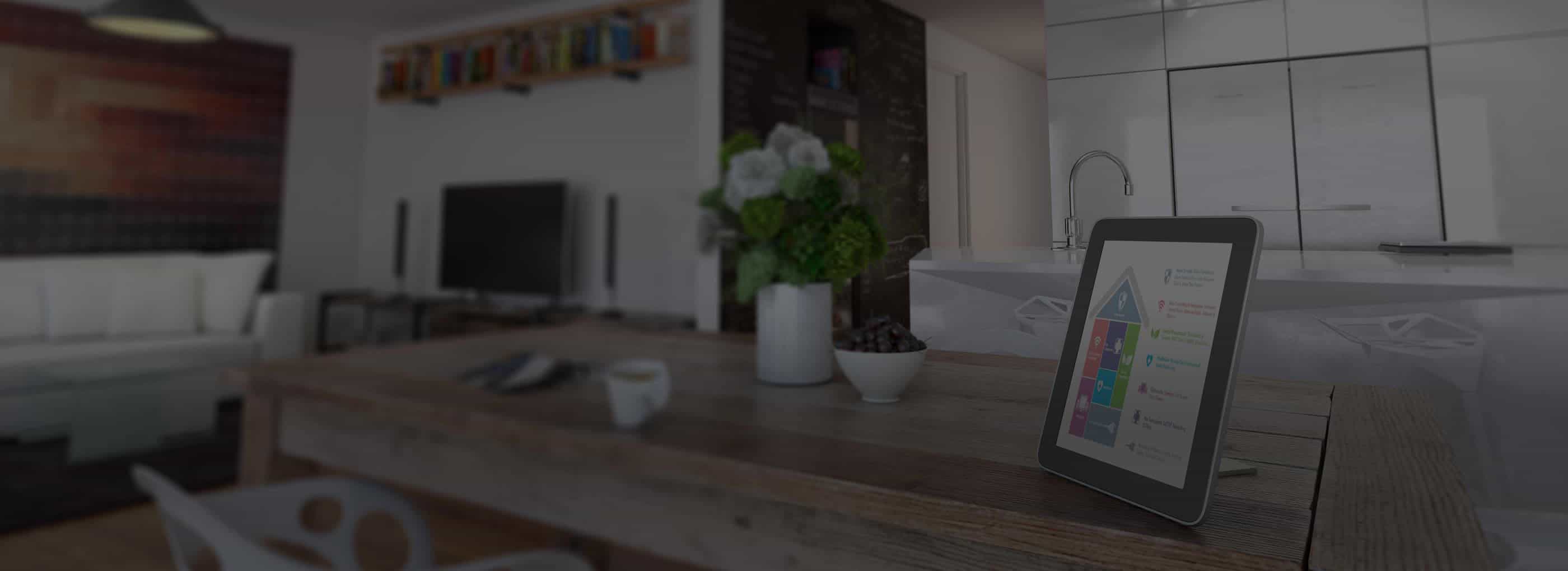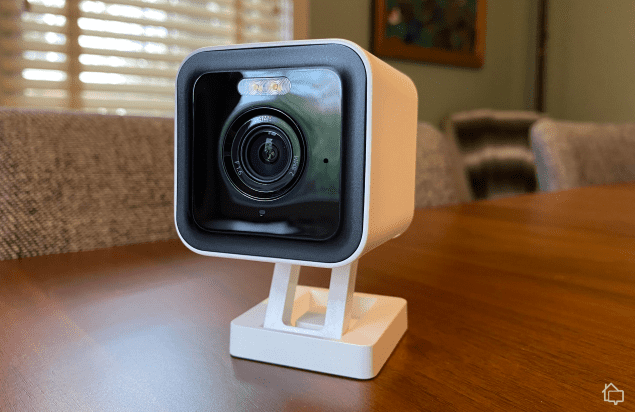
Editor’s Note: We get wanting to keep your home safe – even if you’re selling it. But the best way to stay protected is by using a home security system. Plus, you can always transfer it to your new home. Here’s our list of the best home security systems on the market.
Imagine you’re selling a house. It’s obviously a big event with a lot riding on it. Maybe you’ve already bought your next house. Maybe you’ve been on the market for a while. Bottom line: you need this sale.
So when your open house comes along, on your real estate agent’s advice, you leave your home security cameras on — for security mostly, but your realtor says you might get some good intel, too. And wouldn’t you know it? You catch a couple enthusing over your place. Their exact words are: “We need to make an offer now.” Awesome, right?
Sure, that’s awesome. You have an almost guaranteed taker. But there may be some big issues with how you went about getting that “insider” information. In this homeowner’s guide, we’re going to take a deep dive into what happens when home sellers record homebuyers. We’ll cover things like:
- Why you might consider recording homebuyers
- If recording visitors is legal
- The not-so-obvious laws on audio recording
- Getting consent from potential buyers
- Tips for home sellers recording video
Let’s start with the big question: Why do some home sellers leave the cameras on when they’re showing their homes, anyway?
Did You Know? According to a Lending Tree survey, 33 percent of home sellers admitted to using hidden cameras when they showed their homes. Half of those sellers said they used the cameras to find out how potential buyers felt about their homes.1
Why Would You Record Potential Homebuyers?
Not all homeowners are shooting open house videos to gain an unfair edge over homebuyers. Some of them just want to keep tabs on their property. I already touched on this when I tackled hidden cameras in the workplace, but just in case you didn’t realize it, plenty of business theft happens on the inside — employees steal from their bosses.
In the case of your home, you never know who’s going to show up for an open house, or what they might take or damage. Leaving your cameras rolling will give you a visual timestamp of any shady behavior.
Outside of recording clips of buyers going bonkers over your gorgeous home (or stealing or breaking stuff), there’s one more reason realtors cite for recording video: Showings can get hectic. Being able to review visits like coaches poring over football games can give sellers insight into what’s working and what isn’t.
Which is good for you if you’re selling. But what about for the buyer? I mean, is it even legal to record random visitors inside your home?
FYI: The same Lending Tree study we quoted above revealed another startling fact. Out of 2,050 homebuyers interviewed, 44 percent said they would pass on a house where the sellers had used hidden cameras.
Can You Record People Inside Your House?
I’ve written extensively about the legality of using hidden cameras in the home elsewhere, but here’s the gist: Whether you’ve got home security cameras out in the open or your agent is secretly recording homebuyers with a lapel cam, shooting video of visitors on your property isn’t against the law. However, there are two serious caveats.
One, you can’t shoot anyone in private places like bathrooms. That’s obviously against the law in all 50 states.
Two, certain states don’t allow hidden cameras at all. Check out my report on hidden camera consent laws for the details.
If you do choose to document your showings by video, state laws on hidden cameras in the home all boil down to four words: “reasonable expectation of privacy.” Meaning, if a judge decides you’ve invaded someone’s privacy with your camera, even if it doesn’t happen to be in a place you consider private, you’re in trouble. So always err on the side of caution here.
That’s about it for video recordings. The situation isn’t so straightforward for audio recordings, however. And because this is the information realtors and zealous home sellers often use to tweak sales routines or bargain with, you really need to get this right.
Pro Tip: We’re certainly pro-security-camera around here, but we’re not that fond of hidden cameras. If you’re looking for an inconspicuous, wireless camera that you can use for showings and beyond, check out our picks for the best indoor cameras of 2025.
Is Recording Audio of Potential Homebuyers Legal?
The short answer here is: not really. If you intend to essentially shoot five hours of homebuyer candid camera while you’re at work — or if your realtor has the same idea — you’re violating people’s basic rights. Here’s why:
In order to legally record audio in the United States, you’ve got to be present. That’s the essence of the federal law, which most states follow.2 (In a few states, you’ve got to get permission, too. Scroll down for the list.)
Of course, you might be there in person. Your agent definitely will be. But would you want your realtor following potential buyers around your house? If yes, most of us would still probably agree it’s a good idea to tell visitors their conversations are being recorded, even if we don’t legally need to in most states.
Personally, I can’t imagine a more awkward situation for a realtor or a buyer. But if that’s on your agenda, here’s how to ask nicely.
Did You Know? The states where you need permission to record audio of others inside your home are: California, Connecticut, Delaware, Florida, Illinois, Maryland, Massachusetts, Michigan, Montana, Nevada, New Hampshire, Oregon, Pennsylvania, Vermont, and Washington.
How Do I Get Consent to Record During Showings?
Home sellers have two major options when it comes to notifying buyers that they’re being recorded: verbal and written.
Alerting homebuyers verbally is straightforward. I think that most real estate agents would be on board with the notion that spying without a verbal agreement is not only illegal (if you’re recording audio), but very shady.
>> See more: Legality of Security Cameras
When it comes to written notices, some home sellers prefer an actual piece of paper and a John Hancock. Just be aware that the threat of paper to sign may reasonably scare some potential buyers away. Why do they need my signature? Am I going to end up with a timeshare in the Ozarks?
The other, more discreet way of going about written consent is to post a sign on the premises or add a disclaimer to your listing. Again, as with the signed contract above, don’t be surprised if you lose some interest when homebuyers find out they’re going to be the stars of your open house video.
FYI: Home sellers may run into legal issues recording video of homebuyers, but there are no laws prohibiting buyers from shooting videos inside homes.
Tips for Discreet Open House Recording
So you’re adamant about filming your next showing. Here are a few tips from our experts:
- First and foremost, mute the audio on your cameras. It’s illegal to record people inside your house unless you’re there.
- Don’t rely on video footage to catch thieves. Secure your valuables the old-fashioned way — move them off your property for showings.
- Smaller is better, so don’t purchase massive CCTV cameras. Use what you’ve already got, assuming you don’t have a security setup as over-the-top as Kim Kardashian’s. Don’t have anything yet? These are the best home security cameras money can buy.
Pro Tip: Given all the surveillance at house showings these days, most realtors we’ve talked to recommend wearing a poker face for the duration of your visit. You may be in a better position to bargain that way.
Is Recording Homebuyers Worth It? My Two Cents.
The main problem with recording homebuyers is that, unless you get their consent, it’s simply unethical. If you do get a “yes,” it’s still awkward and may even drive potential buyers away. This isn’t my gut instinct speaking; almost half of homebuyers report that any home seller snooping at all is a dealbreaker for them.
Cameras Can Backfire on You
But there are other factors, too. Buyers may get distracted from your home when they’re constantly wondering if your cameras are picking up their bad hair day. They may also inadvertently say something that’s offensive to you. OMG, would you look at that porcelain Buddha fireplace, honey? How hilarious! And you might not forgive them.
Fair Housing Discrimination Laws
The other big issue with recording your guests is that they could end up using your footage against you. Fair housing discrimination laws are there for a reason: to make sure every potential buyer gets a fair shake regardless of race, gender, or sexual orientation. But buyers who don’t get their way can turn that around and claim that you refused their offer on precisely those grounds. Why? Because they’re not anonymous visitors anymore. You’ve got them on video.
Did You Know? The Fair Housing Act, Title VIII of the Civil Rights Act of 1968, makes it illegal to refuse buyers or renters on the basis of race, religion, national origin, sex, or family status.3
Final Verdict
Considering all of that, is recording video of homebuyers worth it? I’m leaning towards a soft “no,” with exceptions for home sellers who want to monitor their property while strangers they may never see again are inside.
But even there you’ve got other, possibly better, options. Realtors can screen potential buyers to make sure they’re serious and keep records of their visits. If anything goes missing or gets damaged, you have a list of suspects. Foolproof? No. But maybe better than risking a sale on overzealous surveillance.
That’s my two cents.
FAQs
- Can home sellers record homebuyers inside their homes?
Yes, they can, but it’s risky for a number of reasons.
- Do I have to get consent to record home buyers in my home?
No, you don’t legally need consent, unless you’re recording audio, which you shouldn’t be doing anyway. If you’re planning to record visitors at showings, you should get their consent verbally or in writing.
- Is it legal to use hidden cameras to record potential home buyers?
In most states, yes, but it could backfire on you. Buyers who believe they’re being recorded clandestinely tend to leave and never return.
- Are audio recordings allowed when I’m showing a home?
No, unless you’re there in person doing the recording. In 12 states (see above), you also need homebuyers’ permission.
- Can I get sued if I record visitors at my open house?
Possibly, but it’s unlikely — unless you’ve got a hidden camera in your bathroom or some other place where guests can reasonably expect privacy.
- Can homebuyers record videos of the homes they visit?
It seems so. There are no federal or state laws that say otherwise, but it’s still a good idea to get permission from the listing agent.






